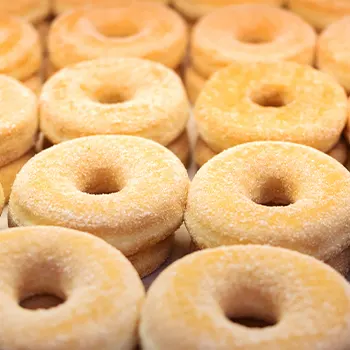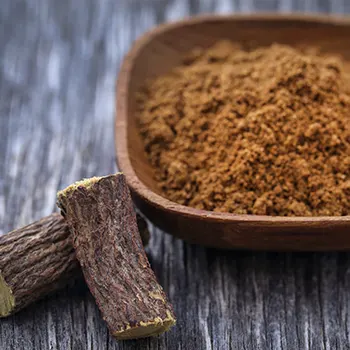Consuming excessive amounts of certain foods, like soy products, processed foods, and alcohol, can potentially “kill” testosterone levels.
Based on my years of experience as a fitness trainer and collaborative research with experts, I've found that, instead of adversely affecting testosterone, maintaining a diet rich in nutrient-dense foods supports optimal testosterone levels.
This article will outline eight foods to steer clear of, aiding you in preserving and sustaining normal testosterone levels for enhanced fitness results.
Quick Summary
- Foods that kill testosterone include dairy products, fried and processed foods, and breads and crackers containing flax.
- Substituting testosterone-lowering foods with nutrient-dense options can support optimal testosterone levels for improved fitness results.
- A significant decrease of approximately 26 percent in serum testosterone levels was observed after one week of consuming licorice.
- Taking from my experience, incorporating natural testosterone boosters, nutrient-rich foods, and regular exercise can aid in boosting T levels and expediting your fitness journey.
8 Foods That Kill Testosterone

Avoiding certain foods can be beneficial for maintaining optimal testosterone levels. Here's a concise rundown of eight foods to watch out for:
1. Dairy Products
A study from the National Institutes of Health suggests that dairy products such as milk and cheese may lower testosterone levels. These dairy items contain estrogen and progesterone, which have the potential to suppress the hormones necessary for the testes to produce testosterone [1].
Also, try to avoid meals that contain high amounts of any of these products. For example, many desserts contain milk.
2. Foods High in Trans Fats

Trans fats may not only elevate LDL cholesterol levels, increasing the risk of heart disease, but they may also lower testosterone levels in the body. A NCBI study demonstrated that the consumption of trans fatty acids had adverse effects on reproductive hormones and testicular volume in healthy men [2].
3. Soy
Various studies present conflicting findings regarding the impact of soy consumption on testosterone levels in men. While some research suggests no association between soy consumption and low T levels, a study from the National Institute of Health indicates that phytoestrogens, hormone-like substances in soybeans, have been found to lower plasma testosterone levels [3].
4. Fried Foods
Fried foods contain trans fats and polyunsaturated fatty acids (PUFAs) that can markedly decrease testosterone levels and contribute to inflammation and arterial blockage. Reducing the consumption of fried foods can mitigate various factors that contribute to low testosterone production [4].
5. Processed Foods
Research from the National Institute of Health suggests that regular consumption of trans fats from processed foods is linked to having fewer sperm in young men. The study revealed that men who consumed the highest amounts of trans fats had lower testosterone levels than those with the lowest intake [5].
6. Licorice

According to the National Institute of Health, exposure to licorice root may have a negative impact on testosterone levels. A study revealed that serum testosterone levels decreased by approximately 26 percent after one week of licorice consumption [6].
7. Flaxseed
Research from the National Institute of Health suggests that foods containing flax, such as cereals, bread, and crackers, may lead to a decrease in testosterone levels. The same research indicates that the elevated levels of lignans in flaxseed bind to testosterone, compelling its excretion from the body [7].
8. Alcohol
As per the National Institute of Health, alcohol consumption can reduce T production by adversely affecting Leydig cells, which are responsible for producing and secreting the hormone testosterone. Furthermore, the research suggests that alcohol interferes with the function of testosterone, leading to issues such as infertility and impotence [8].
Throughout my years of working with clients, I consistently advise them to prioritize healthy eating habits, incorporating nutrient-dense and whole foods alongside their supplements, and maintaining a regular exercise routine to expedite their fitness journey.
Related Articles:
Other Causes of Low Testosterone

Avoiding foods that negatively impact testosterone is important, but other factors can also play a role in maintaining hormone levels.
“One of the things we notice in guys with poor sleep hygiene, apnea [brief pauses in breathing during sleep] or significant stress, is that they can have a depressed level of testosterone.”
- Sriram Eleswarapu, David Geffen School of Medicine, UCLA
Research from the Cleveland Clinic suggests that, in addition to factors like poor sleep, stress, and apnea, low testosterone may be attributed to dysfunction of the pituitary gland, obesity, and aging [9].
If you're thinking about using testosterone supplements, it's advisable to consult with your doctor first and identify the underlying cause of low testosterone.
Related Article: Supplements That Lower Testosterone in Males?
Foods That Boost Testosterone

While certain foods may lower testosterone levels, others have the potential to boost it.
Here are some examples of foods that can enhance testosterone levels:
- Beans and legumes
- Foods with healthy fats (olive oil, coconut oil, fish oil, whole milk)
- Red meat (ground beef, beef liver)
- Fish (oysters, shellfish, cooked lobster, crab)
- Cruciferous vegetables (kale, broccoli, cabbage, sprouts, turnips)
Alternatively, try some of these testosterone boosters for men that we recommend based on 122 hours of research.
Related Articles:
FAQs
What Lowers Testosterone The Most?
Insufficient sleep is the primary factor that lowers testosterone the most. Research from UChicago Medicine shows that low sleep duration and poor quality disrupt hormone balance, impacting not only libido but also energy levels, fatigue, stress, and concentration.
Does Coffee Lower Testosterone?
Consuming coffee does not lower testosterone; in fact, regular coffee intake is associated with initially higher testosterone levels, though the effect is short-term. While it may temporarily boost testosterone right after consumption, it isn't a long-term solution for testosterone deficiency.
References:
- https://www.ncbi.nlm.nih.gov/pmc/articles/PMC6266690/
- https://www.ncbi.nlm.nih.gov/pmc/articles/PMC5312216/
- https://pubmed.ncbi.nlm.nih.gov/11524239/
- https://www.emedicinehealth.com/what_foods_affect_testosterone_levels/article_em.htm
- https://www.ncbi.nlm.nih.gov/pmc/articles/PMC3923511/
- https://pubmed.ncbi.nlm.nih.gov/14520600/
- https://www.ncbi.nlm.nih.gov/pmc/articles/PMC2752973/
- https://www.ncbi.nlm.nih.gov/pmc/articles/PMC6761906/
- https://my.clevelandclinic.org/health/diseases/15603-low-testosterone-male-hypogonadism
About The Author
You May Also Like






